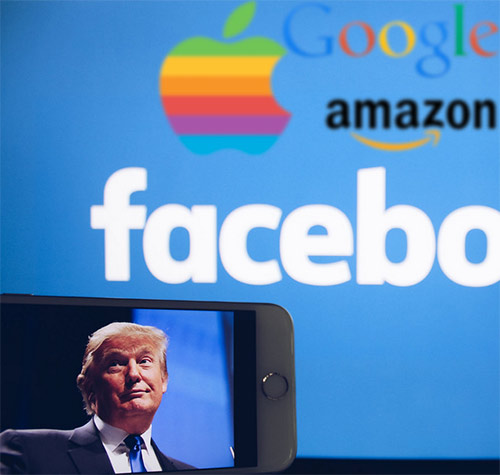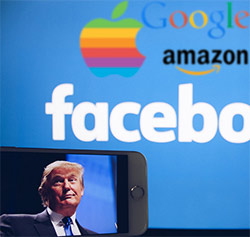In what will spark further concerns for whichever party wins the general election, President Trump's administration has started the first moves to get tariffs imposed on French goods coming into the US.
The issue is long running and details the first official moves by the Americans to respond to the so-called Google Tax - a tax skewed highly toward US tech firms and which slices 3 percent off the top of revenue of the Silicon Valley giants.
France passed the levy into law in July 2019 and are looking at swiping over half a billion euros per year from companies like Facebook, Google (Alphabet) and more trading in France.
The US Trade Rep. Robert Lighthizer has detailed what are effectively sanctions in response. The oddly specific initial list of French exports includes items such as champagne, cheeses, beauty products, luxury accessories and home-ware.
Some companies, such as Amazon, hit by the levy in France passed the costs on to their customers to effectively neutralise it.
The current Conservative government has had a diverted profits tax in place for four years and prior to the diversion of Brexit, had planned to implement a two percent levy on digital companies in a similar manner to France.
The tax is costed to be a revenue raiser and for parties looking to increase spending significantly, as in the case of Labour, it forms one of the major aspects of balancing expenditure.
How the tariffs on France play out will be of great interest to the new occupants of 10 Downing Street from early next year. A trade deal with the US could in particular become an issue for consideration prior to the first UK Budget of 2020.
The French state will likely respond in kind, having previously stated that Trumps threats were 'moronic'.



